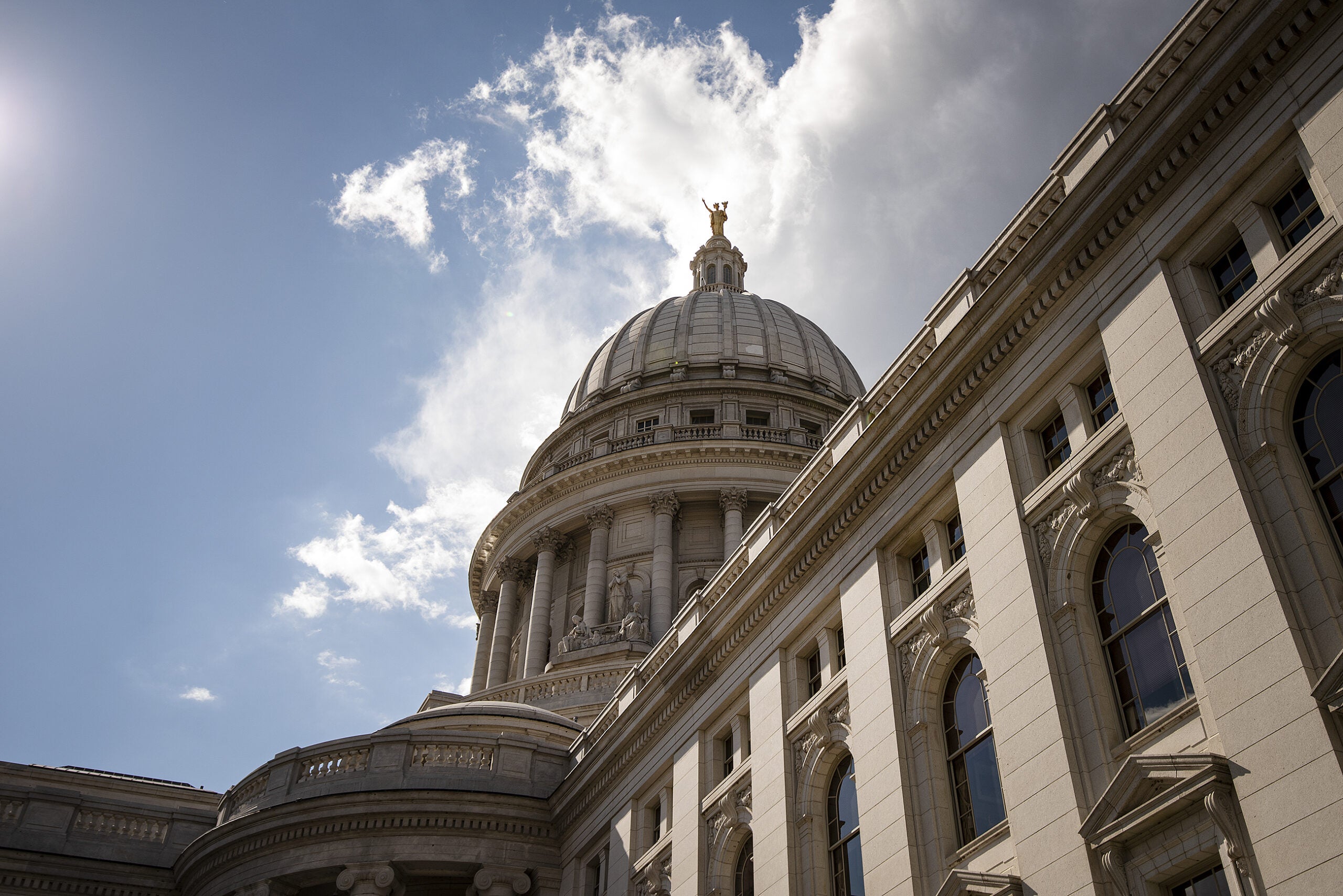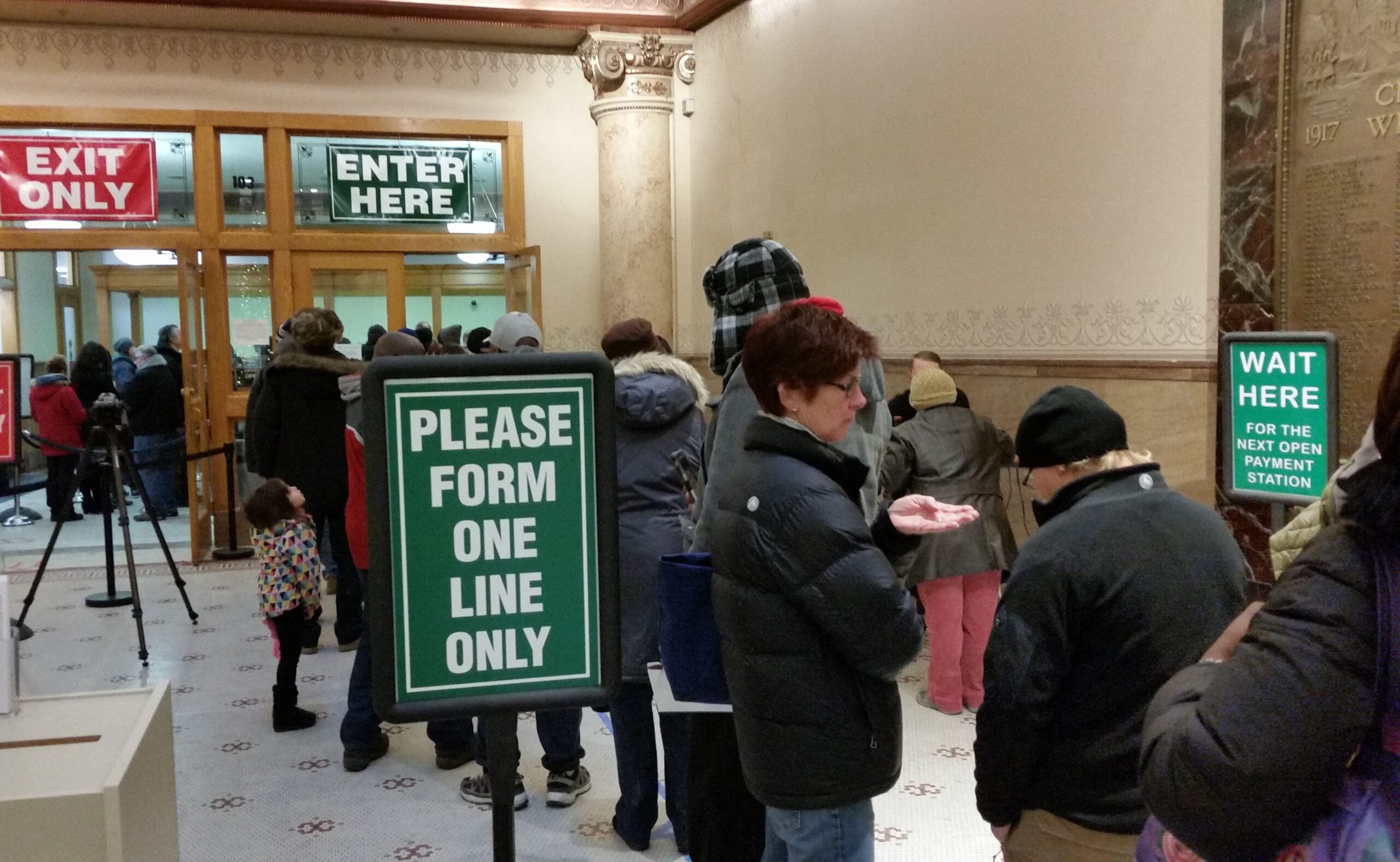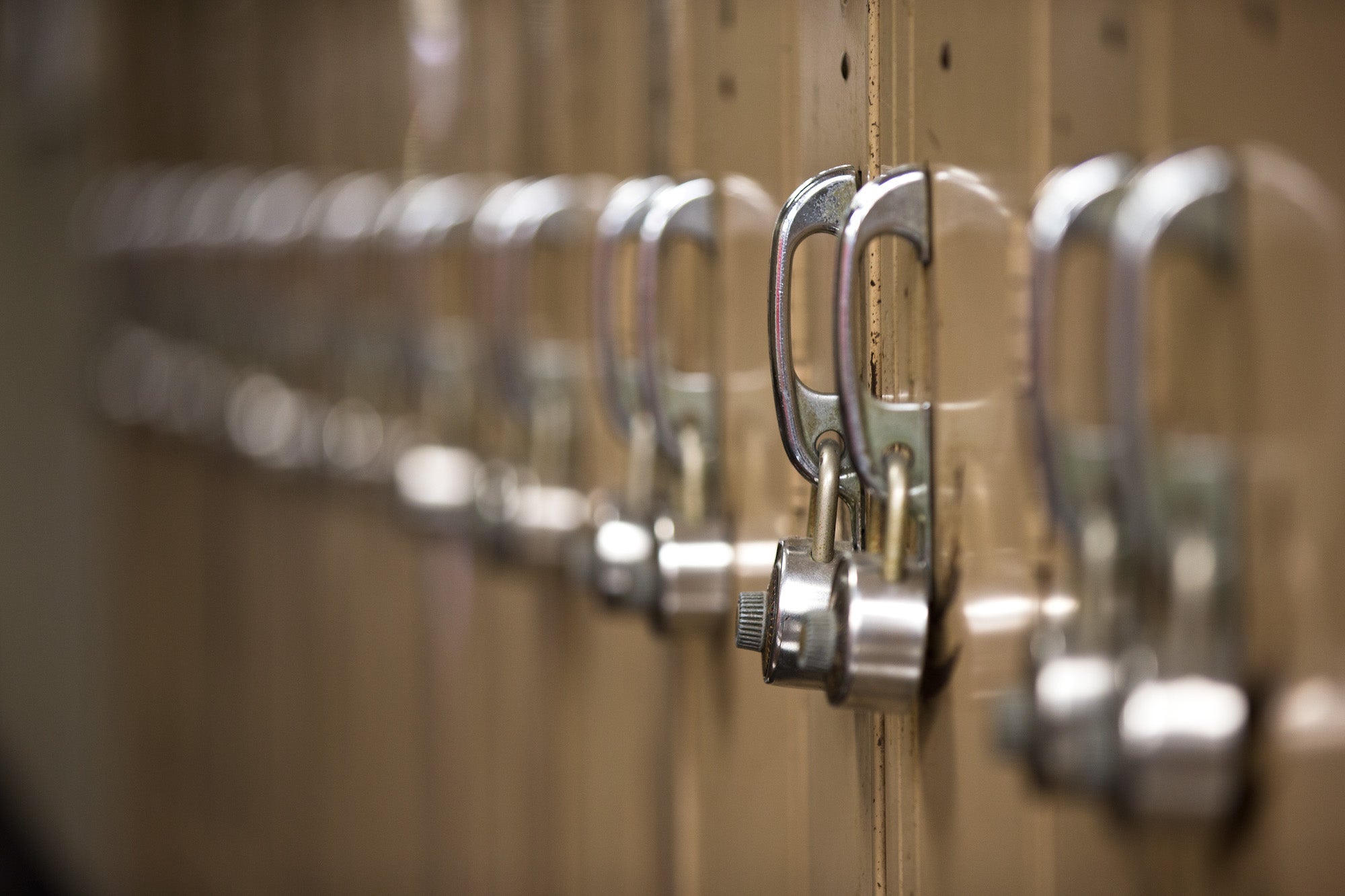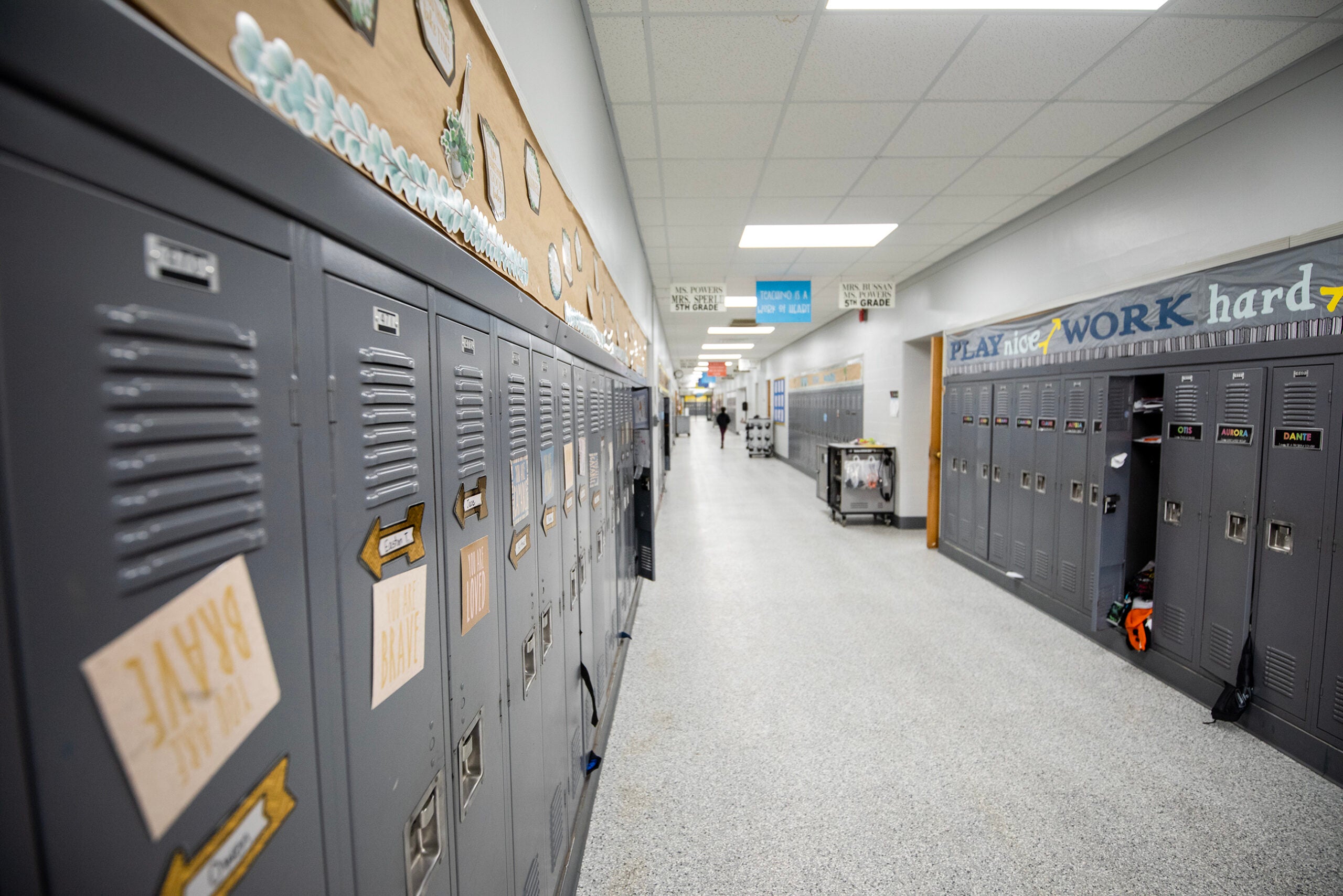Republicans who control the state Legislature are calling for a roughly $3.4 billion tax cut in the next two-year state budget.
The plan passed the state Legislature’s budget committee Thursday night on a party-line vote of 11-4, with Republicans voting in favor and Democrats against.
Under the proposal, income taxes would be cut by $2.75 billion, property taxes would be decreased by about $650 million, and businesses would save $200 million on personal property taxes over the next two years.
News with a little more humanity
WPR’s “Wisconsin Today” newsletter keeps you connected to the state you love without feeling overwhelmed. No paywall. No agenda. No corporate filter.
The income tax cut would apply to individuals who earn between $23,930 and $263,480 per year and married couples who file taxes jointly and earn between $31,910 and $351,310 per year. It would lower taxes for those brackets from 6.27 percent to 5.3 percent. According to the Legislature’s nonpartisan budget office, that change is expected to cost the state about $2.4 billion over two years. An individual or family that earns between $50,000 and $60,000 per year would save $172 on income taxes annually, the budget office said.
Other income tax changes include an exemption for some active duty military and an update to the state’s tax withholding tables.
The income tax changes would go into effect for the 2021 tax year.
The plan was unveiled ahead of Thursday evening’s meeting of the Legislature’s state budget committee. At a press conference, Republican leaders lauded the proposal as one that returns some of an expected $4.4 billion increase in tax collections over the next three years to taxpayers.
“Republicans, especially over the course of the past decade, have focused on making sure that the maximum amount of relief goes back to families and small businesses who really need the help to deal with rising costs,” said Assembly Speaker Robin Vos, R-Rochester.
During the budget committee debate, Democrats were quick to raise concerns about the plan. They argued the money would be better spent on bolstering state spending on things like K-12 schools and that the income tax cut should be directed at the lowest income earners in Wisconsin as well.
“We’re not targeting the tax cut to those who really need it most,” said Sen. LaTonya Johnson, D-Milwaukee. “It’s blowing the biggest opportunity we have to invest in our state, our kids, and our future.”
The Republican proposal would also eliminate the personal property tax for businesses beginning in 2022, a measure that would cost $200 million that year, according to the budget office. This element of the plan has an extra step, however — it would have to be approved in a bill passed by the Legislature and signed by Gov. Tony Evers.
The personal property tax applies mostly to small businesses, which pay taxes on the value of their equipment, like refrigerators or manufacturing machinery. Republicans have attempted to roll back the personal property tax for several years.
“This is something that many of us have been working on for a long time,” said budget committee co-chair Sen. Howard Marklein, R-Spring Green. “I’m just delighted that we can finally put an end to that tax.”
Evers didn’t immediately comment on the tax plan.
GOP Lawmakers’ Education Spending Bump Buys Down Property Taxes
Republicans on Thursday also unveiled a plan to increase state support for public schools. The plan increases state money paid to schools, but doesn’t increase the amount of money schools will have to work with, because it simply replaces school funding previously provided through property taxes with funding from the state.
Under the plan, the state would:
- Buy down property taxes that fund schools by increasing state general school aid funding by $408 million over two years.
- Provide $167 million to replace property tax funding sent to charter schools associated with the City of Milwaukee, University of Wisconsin-Milwaukee, and UW-Parkside.
- Spend $72 million on buying down property taxes directed to the Wisconsin Technical College System.
Overall, the plan would cost $647 million over two years.
The proposed spending plan is a sizable state spending increase from the education plan approved by the Republican-controlled budget committee last month, which would have spent $1.4 billion less than Evers proposed on K-12 schools. That Republican plan spurred concerns from the U.S. Department of Education, which said it could mean the state would fall short of federal requirements for Wisconsin to receive $2.3 billion in school aid under the two most recent coronavirus aid packages.
According to the Legislature’s nonpartisan budget office, the new school funding proposed Thursday would bring Wisconsin into compliance with the federal requirements to receive the aid.
State Employee Raises Approved For 2022, 2023
Republicans on the budget committee also voted to approve a 2 percent raise for state workers on Jan. 1, 2022 and Jan. 1, 2023.
The plan is expected to cost roughly $87 million over the next two years. Evers called for the same raises in his budget proposal.
UW System interim President Tommy Thompson lauded the decision Thursday evening.
“Today’s vote by the committee is a recognition of the vital role faculty and staff play in our campus communities, and I applaud the committee for making this investment,” Thompson said in a prepared statement.
Thursday’s meeting of the budget committee is expected to be its final meeting of this budget cycle. The budget now moves to the full Legislature, which is expected to vote on it later this month. It then moves to Evers, who could fully or partially veto the two-year spending plan.
Editor’s note: Wisconsin Public Radio is a service of the University of Wisconsin-Madison and the Educational Communications Board.
Wisconsin Public Radio, © Copyright 2025, Board of Regents of the University of Wisconsin System and Wisconsin Educational Communications Board.







